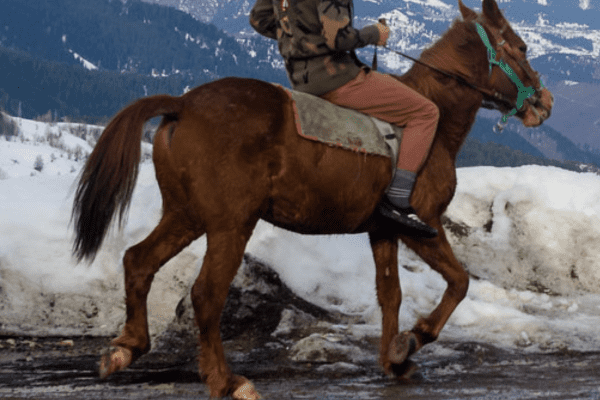The Malakan Horse, a distinguished Turkish breed, is renowned for its robust and sturdy conformation. Characterized by a muscular frame and an upright posture, this breed epitomizes resilience and strength, qualities essential for heavy-duty tasks. This brief introduction aims to explore the unique attributes and enduring legacy of the Malakan Horse.
History:
Beginning around 1840, the Malakan Horse first emerged in Ardahan and Kars, thanks to Turkish immigrants bringing breeding stock from Caucasus regions into Turkey. These efforts eventually resulted in an entirely unique breed renowned for its robustness and endurance – the Malakan.
The Malakan Horse boasts an exceptional genetic composition, drawing its genetic makeup from a wide variety of powerful breeds including Percheron, Clydesdale, Orlov, Shire Ardennes Bicuk Danish Draft Horse as well as native Anatolian horses – this combination was specifically created to produce exceptional strength, stamina and increased capacity for heavy labor.
Turkish government recognized the inherent potential in this nascent breed and made a decisive move by injecting more Ardennes bloodline.
This increased strength and endurance qualities, helping cement Malakan Horse’s reputation as an exceptional workhorse capable of excelling under difficult working environments. Today, Malakan Horse represents an extraordinary chapter in equine history; embodying a confluence of diverse breeds and breeding strategies.
Physical Characteristics:
Malakan horses generally exhibit a sturdy and muscular build, typically standing 14 to 16 hands in height.
Their most striking feature is their shiny coat in various shades such as bay, chestnut or black; its primary distinguishing feature being broad chests, strong backs and well-defined withers; elegantly chiseled faces feature well-positioned ears while manes and tails often flow freely enhancing their majestic appearance.

Temperament and Behavior:
Malakan Horses are well known for their calm, cooperative personalities and are easily trainable.
Due to their natural willingness to work, Malakans are well suited to different equestrian disciplines as well as being ideal choices for family horseback riding programs and therapeutic riding programs.
Cultural Impact:
The Malakan Horse continues to hold an integral place in regional culture. Festivals, parades and equestrian shows feature these horses to celebrate both their beauty and historical importance; art and literature from this region frequently depict them too highlighting their influence over local society.
Conservation and Breeding:
Recent efforts have been undertaken to preserve the Malakan Horse breed, which faces threats from modernization and genetic erosion.
Breeding programs aim at maintaining characteristics while guaranteeing genetic diversity and health in order to ensure its preservation.

